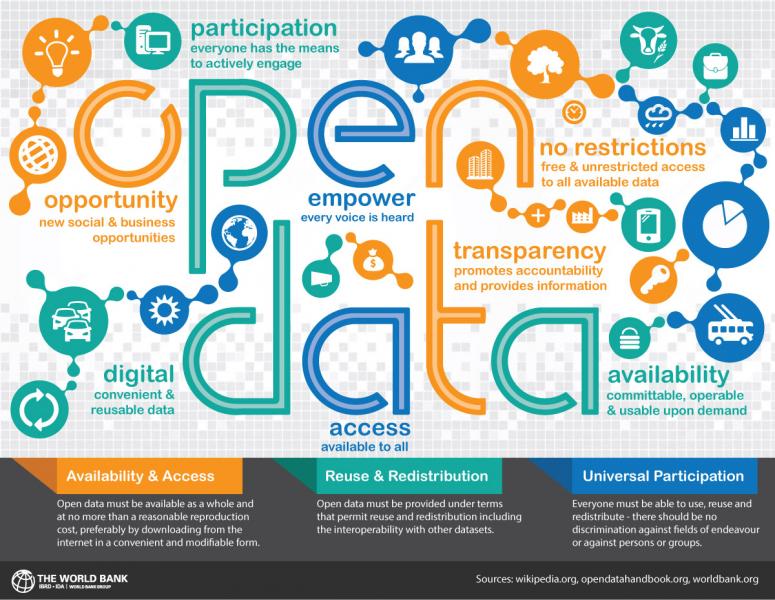Open data can be a high demand to place on certain governments when they lack credible and organized data to begin with, which is a necessity in order to make well-informed decisions. Moreover, open data mends the traditional separation between public organisations and users, and involves a transfer of control from the former to the latter - a shift which governments are not too keen to adopt. A former city government official in Chennai, Dr. Vijay Pingale, discussed how the quality of data at the Corporation of Chennai is poor and disorderly, a fact he discovered during his experience of fostering data-driven decisionmaking as an officer. It is due to this negligence that NGOs such as ourselves aim to generate datasets of our own accord, with the help of willing and able citizens. In this particular case, we are attempting to generate credible data relating to the quality of urban and pedestrian infrastructure - specifically, roads and footpaths in Chennai - which involves coming up with an accurate yet simple index and parameters which citizens can conveniently utilise to assess the condition of roads and footpaths, in order to determine maintenance needs and ultimately, present this data to municipal offices and the government (in particular, the Corporation of Chennai) to incite change and reform.

Image 1: What is Open Data? (Source: The World Bank)
However, this level of data generation and assessment comes with its own set of challenges. Most importantly, we are relying almost entirely on citizens to generate this data. This would involve a huge amount of trust, in both directions; as an NGO, we would have to trust that whatever data the citizens collect is as accurate as possible (not over exaggerated, for example), and citizens would have to place their trust in our position as an NGO, the information and potential toolkit we would provide them, as well as the end result: will the data we hope to generate effectuate reform on behalf of the government? Furthermore, we are also relying on the fact that enough citizens will indeed be concerned enough about the current abysmal conditions of roads and pavements in order to want to take the time out of their schedule to carry out the quality assessment. Mutual assurances are necessary so as to ensure that the data produced is of the highest possible quality. Thus, there are a few key potential challenges involved with the delicate citizen-NGO relationship.
Moreover, the former concerns would depend wholly on whether or not CAG (after correctly setting up the geospatial database of all roads and pavements in the city) can accurately determine the parameters and facets of the road quality index that citizens can use to evaluate road and footpath surface conditions. If this is not entirely user-friendly or reliable, this would bring a whole new set of obstacles; the final data produced would either be insufficient or inaccurate. Additionally, one of the ways by which we intend to enable this citizen assessment is through a mobile toolkit, or an application that citizens can use to collect data, which would then feed into a database. Therefore, one of the challenges would definitely involve ensuring that this mobile application functions as it should and meticulously collect the data it is provided with, in addition to having a user-friendly interface - this may potentially involve additional manpower and therefore, additional costs.
Reverting to one of the previously mentioned points, actually assessing the quality of urban infrastructure brings with it another potential set of problems. Ordinarily, measuring the quality of roads is a fairly technical procedure, requiring prior know-how as well as the correct equipment. However, we discovered an unambiguous official road quality index called the Pavement Condition Index (PCI) which has been standardized by ASTM International, that essentially quantifies road quality using factors such as ride quality and various types of surface distresses that can be found on roads - making it a substantially citizen science - friendly approach to assessing road conditions. It certainly requires simplification for citizen use, taking into account the most identifiable issues regarding urban infrastructure quality, in order to generate plentiful and accurate data. However, a substantial amount rests on the fact that this modified index we intend to come up with is as precise as possible so as to ensure that the data that is eventually collected is serviceable. Once this occurs, we may encounter troubles comprehending and maybe even manipulating the data, especially if we intend on using data visualisation as a presentation tool.
Possibly the most important challenge is ensuring that, if everything goes as planned and we generate unambiguous data regarding the quality of roads and footpaths, the Corporation of Chennai makes progress towards revolutionising the maintenance and improvement of current conditions. There has been retrospective evidence suggesting otherwise; for example, the story of the highly reputed IAS officer Dr. Vijay Pingale went viral during the disastrous November 2015 floods, when it became public knowledge that he had been transferred a year before, following an unprecedented move towards transparency in which he named and fined contractors for botching up road work and repairs. Many believed that Pingale, who was well respected for his expertise in limiting waterlogging when it rained, had essentially warned the public of the dangers of poor road conditions with his bold move - and yet the Corporation succumbed to the demands of the powerful contractor lobby, thereby failing on two major counts: transparency and accountability.
However, we are absolutely certain that the citizens of Chennai have had enough of the deplorable conditions of urban infrastructure, and wish to see tangible change and amelioration on the part of the government. Regardless of the probable challenges ahead, which are important to assess so as to be prepared and rule out any element of surprise, we are confident that the citizen’s demand for transparent and accountable governance will not be overlooked.
Add new comment